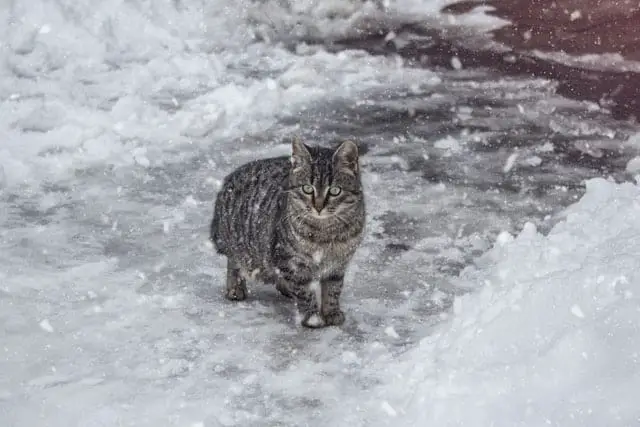
In cities and urban centers, single specimens or colonies of stray felines often live, which suffer from low temperatures in the winter months. Here’s how to protect stray cats from the cold.
With the arrival of the winter season and the contextual lowering of temperatures, even the animals suffer from the cold and it is up to the owners to put in place all the solutions necessary to make their furry friends and non-furry friends face the cold. Who, on the other hand, protects strays in this situation? How to protect stray cats from the cold? If you are an animal lover and care about the health of “nomadic” felines, continue reading this article, we offer you solutions to your questions.
Here’s how to protect stray cats from the cold

First of all you must know that even cats, despite their furry coat, feel cold. The cat, like the dog, has a body temperature of 38.5 degrees and thanks also to the coat it resists winter temperatures very well, but when the mercury column drops below 5 degrees it starts to feel cold. The degree of humidity also greatly affects the perception of cold.
There are many stray cats that live around cities and towns and the feline colonies are protected by law and are often managed and cared for by volunteers. Before taking any action, therefore, you will have to make sure and inform yourself about the people who may be responsible for the care of cats who generally coordinate the aid operations to strays and know the needs of the animals and the territory. But what can you personally do? If cats are close to your home or hanging around in your garden you can:
- set up an emergency shelter in a corner sheltered from disturbances by putting in disused clothes, old blankets or old sweaters to guarantee the cats some warmth;
- place a bowl of lukewarm water as felines may have difficulty finding water because liquids tend to freeze at low temperatures;
- check that in the neighboring areas there are no residues of antifreeze liquids and other chemical products, these are often used in winter to remove the ice from the windows of cars or from the avenues but turn out to be lethal for cats if ingested.
If the cats are run by volunteers (as mentioned above) you can:
- ask volunteers if they need used blankets, rugs and clothes and make a donation;
- ask volunteers if they need cat food, dry or wet.
Give up the temptation to bring cats indoors; the specimens belonging to the feline colonies are not used to constant contact with humans and therefore are not always suitable for domestic life
If you think a cat has been lost (because it is alone and not intimidated by the presence of man), contact the local authorities to try to identify the rightful owner.






